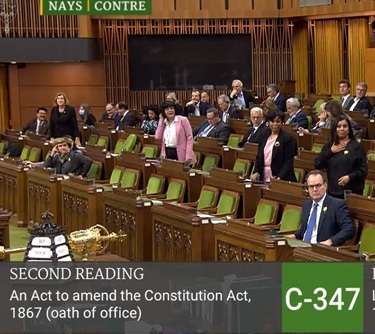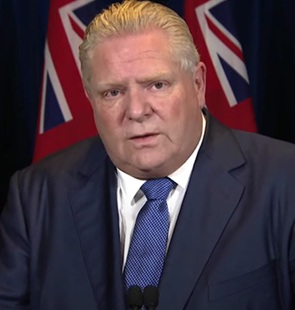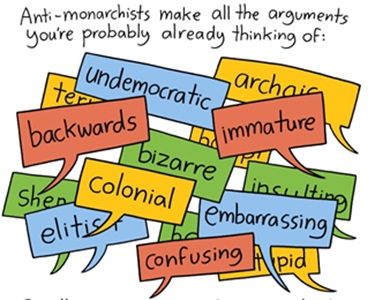More than 9 in 10 Canadians want MP s to swear an oath of office to Canada not to a monarch across the sea … but many MP s still don’t want to listen
Jan 4th, 2025 | By Ashok Charles | Category: In Brief
ASHOK CHARLES. THUNDER BAY, TORONTO, SATURDAY, JANUARY 4, 2025. I am the Executive Director of Republic Now — a non-partisan organization launched in 2013, to press for the replacement of the British monarch, as Canada’s head of state, by a democratically selected Canadian.
Early this year we were heartened by New Brunswick MP René Arseneault’s private member’s bill, which would have made the 1867 constitutional requirement for newly elected Members of Parliament to swear an oath of allegiance to King Charles III optional.
Mr. Arseneault’s Bill C-347 proposed that Members of Parliament and Senators be able to pledge to carry out their duties “in the best interest of Canada while upholding its constitution” rather than, or in addition to, taking the (medieval and colonial) oath of monarchical fealty.
Months before this past April, when the bill was debated and voted on in the House of Commons, Republic Now sent a message to every MP and Senator urging them to support it.
Our message referenced a 2023 Abacus Data poll which revealed that “2 in 3 Canadians would vote to eliminate the monarchy in Canada,” and that only 18% view King Charles positively, while 33% hold a negative view.
As such, we argued, a commitment of conscientious public service in the MP’s oath of office would be greatly preferable to an oath of fealty to a king that the majority of Canadians do not want as their head of state in the 21st century.
Unfortunately, Bill C-347 was defeated, 197 to 113. Collectively, our elected representatives insisted that a monarchical oath of fealty, dating from the 16th century, is preferable to a pledge of service to Canada, and a commitment to uphold our constitution.
The 2023 Abacus Data poll, referenced in our initial message to parliamentarians, probed public sentiment in regards to the monarchy and King Charles, and did not specifically address the parliamentary oath of office. After the defeat of Bill C-347 Republic Now commissioned a new poll, from the same firm, which did cover the oath.
Completed in October 2024, this survey suggests that a resounding majority of Canadians want their elected representatives to pledge allegiance to Canada rather than Charles Windsor across the sea.
Our poll asked 1,900 Canadians which of the following pledges they would prefer that MPs and Senators take as their oath of office:
(a) “I promise to conscientiously discharge the duties of my position, serve the interests of my constituents and my nation, and uphold Canada’s Charter of Rights and Freedoms” ; or
(b) “I do swear that I will be faithful and bear true allegiance to His Majesty King Charles the Third” (the wording of the current parliamentary oath).
An overwhelming 91% of poll respondents chose the first option (a)!
In some excitement we sent a summary of the survey to all MPs and Senators, with a message urging them to revisit the issue of reforming their mandatory oath of office, in light of clear evidence that their constituents want a modern, parliamentary democratic pledge.
So far no Member of Parliament or Senator has reacted publicly to our poll showing that nine out of 10 Canadians would prefer a non-monarchical oath of office.
It may be that there is currently an anxious, if obsolete, surge of mindless monarchist passion among government and media elites in Canada.
Consider, for example, that Doug Ford has the Ontario Legislature sing God Save the King on the first Monday of every month, and that he spent 1.5 million dollars to install a statue of Queen Elizabeth at Queen’s Park.
Furthermore, Charles Windsor is a self-identified enemy of enlightenment values who, not content with the allegiance of politicians, urged the citizens of all commonwealth countries to swear fealty to him when he was crowned.
What becomes clear is that Canadians, generally, are more progressive, and more sympathetic to the “free and democratic society” of the Constitution Act, 1982 than many of their their elected representatives — and are far more emancipated than their medievally-minded head of state.
One can’t help wishing that the 197 MPs who voted against pledging service to Canada, instead of fealty to a British king, valued the aspiration for a head of state whom we choose democratically (as in such modern parliamentary democratic republics as Germany, Iceland, India, or Ireland, eg), as much as the growing majority of their constituents do.




